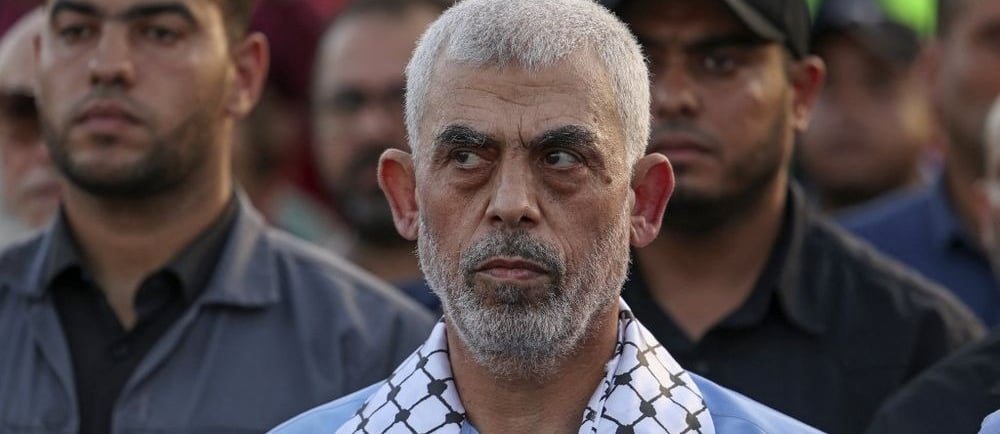Hamas' New Hardline Leader: End of Hopes for a Ceasefire and Regional Stability in the Levant?
The assassination of Ismail Haniyeh has triggered a significant shift in Hamas's leadership, marking the rise of Yahya Sinwar, a figure known for his hardline stance and military orientation. As the region braces for potential escalations, how will this leadership change impact the fragile stability in Israel and the Levant?
ISRAELPALESTINE
Ekaterina Romanenko
8/31/20244 min read


The assassination of Ismail Haniyeh, a leader who played a pivotal role in Hamas’s diplomatic efforts, has dramatically shifted the organization’s leadership dynamics. Haniyeh, known for his role in negotiating ceasefires and maintaining a delicate balance between militancy and diplomacy, was central to Hamas’s strategies in recent years. His assassination on July 31, 2024, has paved the way for Yahya Sinwar to rise to power—a shift that many fear could lead to a more confrontational era for Hamas.
Yahya Sinwar’s reputation precedes him. As one of the founding members of Hamas’s military wing, the Izz ad-Din al-Qassam Brigades, Sinwar has long been associated with the group’s most hardline elements. His leadership style contrasts sharply with Haniyeh’s; where Haniyeh sought to engage in negotiations, Sinwar has historically prioritized military strength. According to a report by Responsible Statecraft, his past actions have indicated a preference for armed resistance, often at the expense of diplomatic efforts.
Sinwar’s influence within Hamas is not new. Even before Haniyeh’s assassination, he played a crucial role in shaping the organization’s military strategies, being responsible for purging rivals within Hamas. This has cemented his position as a formidable leader who is less likely to pursue diplomatic solutions. According to The Economist, Sinwar’s leadership marks a significant shift towards a more militant stance, making a ceasefire with Israel less likely.
The international reaction to Sinwar’s rise has been one of alarm and concern. The United States, which has been involved in facilitating peace talks between Israel and Hamas, views Sinwar’s ascension as a potential setback. A Reuters report highlighted that U.S. intelligence officials are concerned that Sinwar’s leadership could derail ongoing ceasefire negotiations, making a peaceful resolution even more elusive.
The Israeli reaction was sharper. The country’s authorities have explicitly labeled Sinwar as a prime target for elimination, underscoring the gravity with which they view his leadership. This response is rooted in Sinwar’s alleged role as the architect of the October 7 attack on Israel, which significantly escalated the already volatile relationship.
The Israeli government has indicated that Sinwar’s ascension marks a critical juncture in their conflict with Hamas, with the IDF preparing for potential escalations in violence. The rhetoric from Israeli officials suggests that they perceive Sinwar not only as a continuation of Hamas’s militant policies, but as the embodiment of an even more aggressive and uncompromising approach.
In the broader Middle East, reactions to Sinwar’s rise are mixed. Iran, which has historically supported Hamas, may see an opportunity in Sinwar’s more militant approach, potentially providing greater support to Hamas's military operations. However, countries like Egypt and Jordan, which have sought stability in the region, are likely concerned about the potential for renewed conflict. The Middle East Monitor suggests that Sinwar’s leadership could lead to an intensification of hostilities, particularly in Gaza, which would have broader implications for regional stability.
Looking forward, the consequences of Sinwar’s leadership are uncertain, but the risks are clear. One likely scenario is an escalation of violence between Hamas and Israel. An NPR analysis echoes this concern, noting that Sinwar’s commitment to armed resistance could make peaceful negotiations far more challenging.
Another potential outcome is the further isolation of Hamas on the international stage. Sinwar’s hardline approach could alienate potential allies and make it more difficult for Hamas to secure the political and financial support it needs. The European Union has already added Yahya Sinwar, Hamas’s leader in the Gaza Strip, to the EU’s terrorist list for his involvement in the October 7 attack and imposed sanctions on him in January this year. This could further exacerbate Hamas’s financial difficulties and weaken its position both domestically and internationally.
There is also the possibility that Sinwar could be pressured into engaging in diplomacy if the international community applies enough pressure. However, given his past actions, this seems unlikely. Foreign Policy nonetheless argues that while international actors may attempt to engage with Sinwar diplomatically, his history of prioritizing military solutions over negotiations does not bode well for future peace efforts.
The international community now faces a critical moment: how it chooses to engage with Hamas under Sinwar could shape the future of the Israeli-Palestinian conflict for years to come. Whether through increased diplomatic efforts or enhanced military preparedness, the stakes have never been higher.
The rise of Yahya Sinwar as the leader of Hamas has profound implications for the business environment in Israel and the broader Levant region. The increased likelihood of escalated violence and instability under Sinwar's leadership could significantly disrupt economic activities, particularly in areas close to the Gaza Strip and other conflict zones. Businesses in Israel, especially those involved in tourism, logistics, and agriculture, may face heightened risks due to the potential for renewed hostilities. The uncertainty may also deter foreign investment, as companies might view the region as increasingly volatile. Additionally, trade routes could be affected, particularly those connecting Israel with neighbouring countries, leading to broader economic ramifications. In the Levant region, countries like Jordan and Lebanon, already grappling with their own economic challenges, might experience further strain as instability in Gaza could spill over into border areas, affecting regional trade and security. The overall business climate in the Levant could suffer from reduced investor confidence and the potential for disrupted supply chains, further complicating economic recovery efforts in a region already fraught with challenges.


